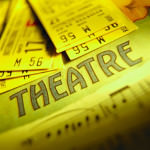When I, a longtime theater buff, moved to DC nearly a dozen years ago, I discovered something weird: The Metro DC theater scene is utterly confusing to anyone who doesn’t already know their way around in it. It took me years to figure out where to look for what, with what expectation of artistic content, production values, ticket price, venue amenities, and such. By contrast New York City, where I lived for decades, is a breeze, and London, which I visit now and then for theatergoing, is a snap.
I keep running into other fans of theater around town who are in the same muddle I was. They like going to theater, they tell me; many even say they love it. But when I ask where they go when they go to the theater, they know only about the big ones; they have no clue about the small. When I tell them how adventurous and invigorating the small theaters are in and around DC—and how many there are—they are floored. Then when they ask me how to find all those exciting small-theater offerings for themselves, I’m stumped.
Metro DC is a major U.S. theater city—second only to New York City in number of theater seats—but we are a town without theater tiers.
New York City has three clearly demarcated categories within which similarly scaled productions with similar price points compete with one another for ticket buyers—Broadway, Off-Broadway, Off-Off-Broadway. London has three such categories—West End, Off West End, and Fringe. The Washington Metro theater scene, however, is an undifferentiated blur. Bewilderingly, area theater listings, promotions, and reviews always appear in the same bucket, whether in traditional or new media or on ticket-discounting platforms. Both Time Out New York and Time Out London parse a sprawling theater scene into three tiers, clearly comprehensible by theatergoing aficionados and novices alike. Metro DC has no such equivalent consumer-friendly communications medium in part because Metro DC has no such equivalent consumer-friendly tiers.
What Metro DC does have, thanks to theatreWashington, are two tiers that are comprehensible only to theater insiders—the Helens and the Hayeses—parsed apart not on the basis of any factor at all relevant to any ordinary theatergoer’s expectations, experience, information needs, or budget.
There’s something really problematic here, not to mention ridiculous, and I believe Metro DC’s vital and vigorous small-theater movement can begin to lick it by taking one simple step: Pick a name for Metro DC’s adventurous small-theater landscape and just start using it. Obviously the name can’t be “off-off” anything and the name can’t be “fringe” anything. It needs to evoke the counter-mainstream and sometimes anarchic ethos so abundant among Metro DC’s small theaters. Crucially it needs to signal the affordability of the scene. What it does not need are membership criteria (small theaters already know who they are). And it does not need boundaries brokered from on high by any institution (because it’s about self-branding, not self-aggrandizing). It just needs to be the name that small theaters start calling themselves. Simple as that. As of now, small theaters name themselves “the small theaters,” which as a descriptive identifier is fine if a bit dull. But “small theaters” will never be a name with buzz-worthiness or bounce.
Some theater artists may feel resistant to naming and promoting the small-theater tier as such, because to do so seems like instituting yet another categorization system based on an unwanted class distinction. I get that thinking and sensibility; it’s an egalitarianism that’s one of the Metro DC theater landscape’s greatest assets. But when I look at that landscape from an ordinary consumer’s perspective—from the point of view of someone who is not wealthy but who wants a good experience in the theater if it can be found for good value—I conclude that clearer navigational guidance to where that all good stuff can be found would be perceived as a huge service, and might even get lots more butts in those cheap seats.
I’ve been mulling this wayfinding problem for a while, talking with folks about the notion, asking around for names for the small-theater scene.
The best idea I’ve heard so far is the ‘Indie theaters,’ or the ‘Indies’ for short.
Let’s kick it around.







Well, we could try MidCap and SmallCap.
A great idea!
I like the whole “independent” concept because it suggests an analogy to film, as in major studios as opposed to independent films.
My suggestion (very much like John’s) “independents”.
I agree with John entirely. As a longtime New Yorker, I am still–after two-and-a-half years in DC–bewildered by the range and opacity of the local theater scene.
However, I don’t think “independents” does it, since many of the traditional theaters are independently-owned. “Small” says it all, but it’s boring. “Intimate” addresses size, but there’s more than size involved. (The New York system actually reflects the number of seats in each theater, since Equity mandates higher salaries for bigger venues.)
But how about “traditional” versus “off center?” Or “center stage” versus “off stage”?
Alternatively, maybe it’s a financial split–as in “Hot tickets” versus “$50 or less”?